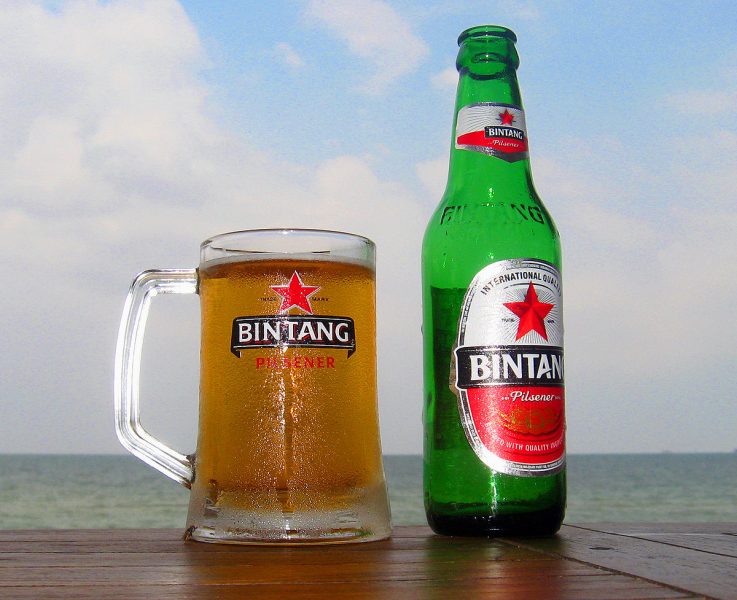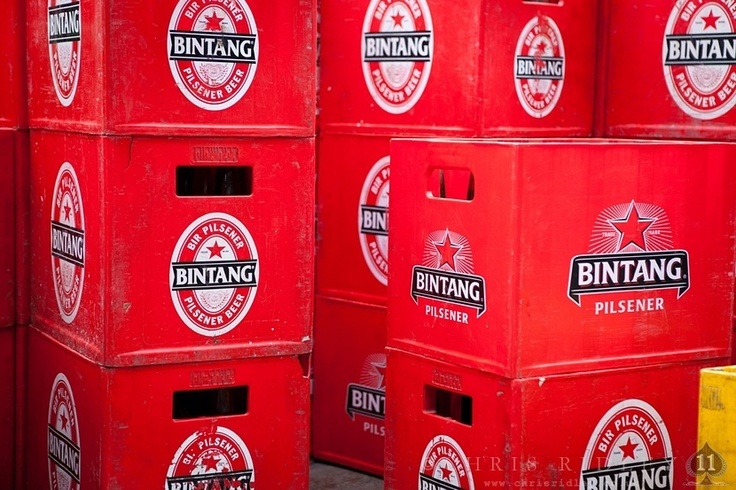Alcohol is considered one of the most controversial topics in the world’s largest Muslim-majority country of Indonesia. A couple years back, you could still find beer and vodka at a variety of stores, including mini markets.
However, since April 2015, mini markets and convenience stores have been prohibited from selling alcohol. This is done mainly to protect minors from buying booze easily. Luckily, you can still get alcohol in places like the archipelago’s supermarkets, bars and restaurants.
If you are an expat buying alcohol, you might notice that there is a brand which stands out from the rest in terms of quantity and its low price: Bintang. With a rough price equivalency of US$1 per can of beer, it is a go-to for anyone who needs an affordable drink to take the edge off after work.
As one of the oldest companies in the nation, PT Multi Bintang Indonesia has already been operating for 88 years. Before September 1981, the company was named PT Perusahaan Bir Indonesia.
The company mainly produces the Bir Bintang (translation: Star Beer) and its variants, including Radler, Zero (0,0%) and Maxx (0,0%). It also produces non-alcoholic soft drinks like Green Sands and Feyrouz.
Despite selling one of the cheapest beers in the country, the company reported that it had earned a net sales amount of Rp.2.7 trillion (approximately US$ 200 million) in 2015. This amount is only a couple hundred billion Rupiah less than the previous year (Rp. 2.9 trillion or US$ 216 million). This drop was mainly caused by the ban on selling alcohol in mini markets across the nation such as Indomaret and Circle K.
In 2016, Multi Bintang Indonesia was considered one of the fastest rising companies in terms of profit, outgrowing giants like PT Kimia Farma Tbk and PT Unilever Tbk in the first quarter. It is now estimated that the company dominates its industry, with around a 55 to 60 percent market share.
For the company, one of the biggest challenges to growth is the strict regulation on alcohol distribution in Indonesia. Aside from the 2015 distribution ban, one of the major growth hiccups for Bintang occurred last September when the company’s plan to expand its production factory of non-alcoholic beverages in Mojokerto, East Java was canceled due to changes in the distribution law.
However, an official stated that the company is currently in the state of redesigning and restructuring the plan for expansion.
Around the same month in the third quarter, Bintang’s profit margin went up by 92.1 percent from the previous year’s Rp.353.42 billion (US$ 26 million). By the end of last year, the company’s market shares were valued at Rp.11.700 (US$ 0.87) per share. It dropped to around Rp.11.600 (US$ 0.86) per share in early March of 2017.
With these things in mind, there is a high chance that the company’s revenue will soon increase, as Bintang has recently expanded for the first time to the United Kingdom. That said, we might not be able to see significant growth and possibly even some drops around June, as the Holy Month of Ramadan approaches in Indonesia and locals stop drinking.
In the UK, Bintang beer will be distributed by Kingfisher Beer Europe. The Indian beer company’s partnership with Multi Bintang Indonesia seeks to promote the lager beyond pubs and bars. The main reason why the two companies decided to launch the brand in the UK is due to the high demand of premium and easy to drink lager.
While most expats in Indonesia would laugh at the word “premium” when using it to describe Bintang, the beer’s affordability makes it likely able to hold its own against other local brands such as Islay Ales, Britannia, Thornbridge and Porter. This also opens the possibility for Multi Bintang Indonesia to distribute other non-alcoholic beers and soft drinks in the UK.
Image credits: Wikimedia, Campaign Asia





